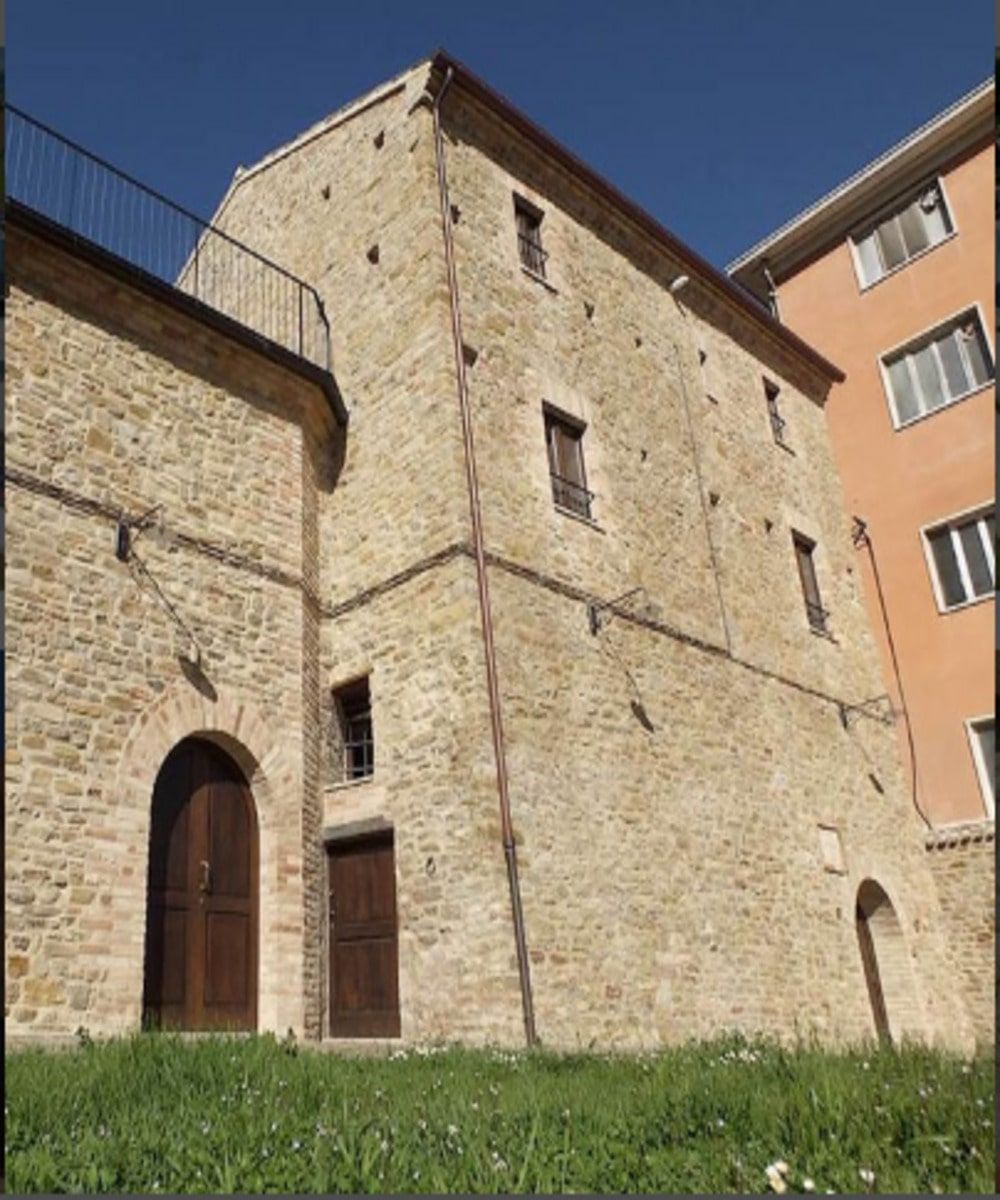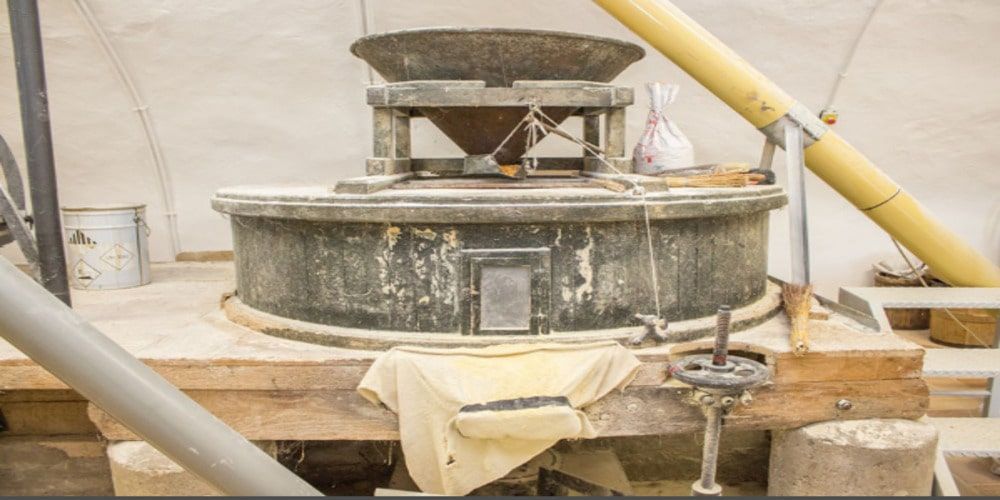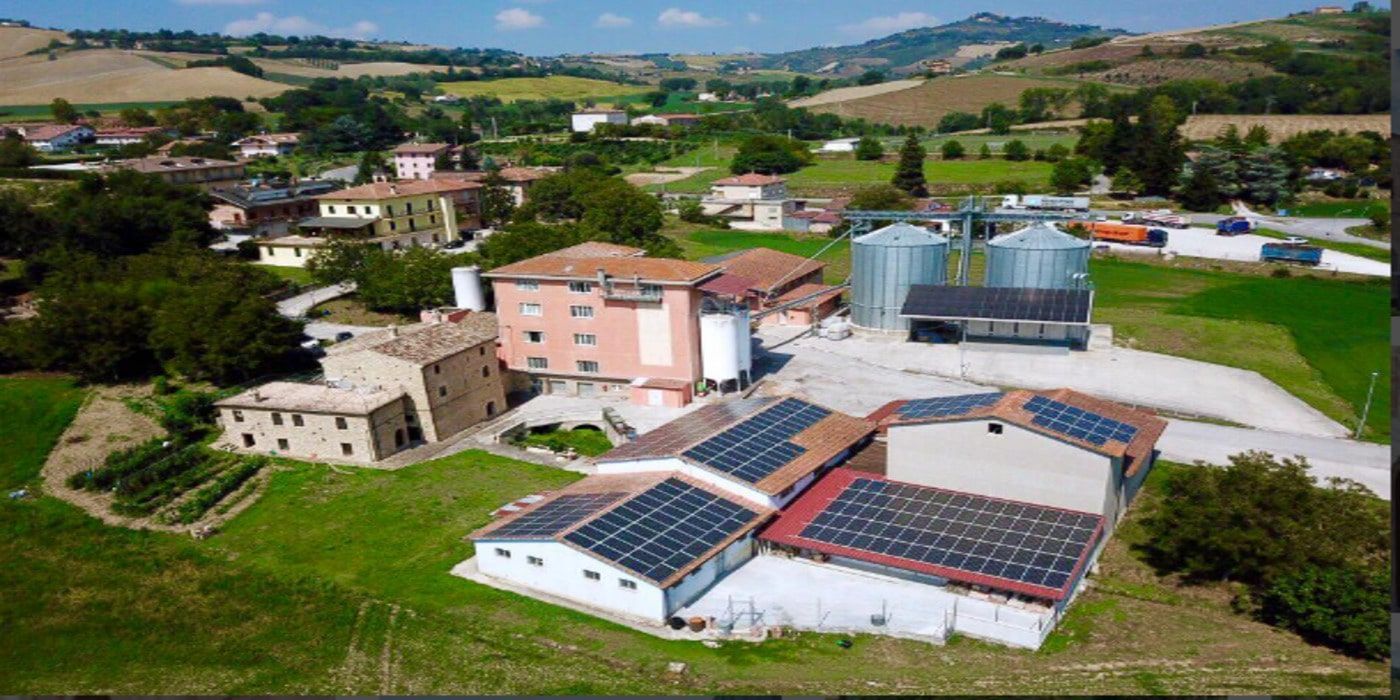It was one of the first mills in the Marche region to run on water and one of the oldest still in working order: the Molino Rastelli is not only an institution in Santa Vittoria in Matenano for its flour production but also an attraction and an important landmark in the history of these places.
Somewhere between antiquity and contemporaneity in one of the activities on which the identity, culture and economy of the region and of the entire Italy is based, Molino Rastelli has been able to bring a medieval-era site back to life without distorting it but rather accompanying it into our present: today we move to the hamlet of Ponte Maglio to learn about this flourishing activity and fascinating place.

Ponte Maglio: towards the Molino Rastelli

The Ponte Maglio suburb is located about 3 kilometers from the old center of Santa Vittoria in Matenano and is surrounded by the green Fermo countryside. This rural and idyllic space is made for breathing clean air, taking a walk, starting trekking routes but also for coming across some historical relics from various eras - as if it were a sort of detached section of the ancient village.
Outside the center, it is possible to admire, for example, the ancient Church of Madonna degli Angeli, dating back to the 15th century, which houses inside a fresco (unfortunately partly damaged) of the Madonna del Latte, which depicts the Virgin Mary while breastfeeding the baby Jesus, as a pair of musician angels surround her.
And keeping with the theme, in this area we also encounter the famous Milk Fountain, a fountain that seems to have quenched the thirst of the Farfensians as they transported the remains of Santa Vittoria and helped nursing mothers with poor milk supply. Given its very clear influence on the powers of the fountain, there is also a statue of Santa Vittoria near it.
A couple of miles later we come across the historic Molino Rastelli, a true institution in Santa Vittoria in Matenano. The family, which resides in a splendid Art Nouveau villa a few meters away, has been running the mill for no less than 5 generations, and more precisely since 1852, when the lawyer Pacifico Rastelli bought it from the municipality and resumed the activities of this building dating back to the late 14th century. Even at that time, in fact, grain was already being ground in the Ponte Maglio area, thanks, of course, to agricultural knowledge of Farfensis.
Rastelli Mill:a seven-century-old icon

Since the 14th century, exactly since 1392, as evidenced by the plaque on its facade, the Rastelli Mill has never stopped working. Whether it was for grain milling or later for copper production, it had primacy in the area for operating with water, transported and channeled directly from the Aso River.
The ancient building is made of sandstone and brick, has a rectangular floor plan and consists of three floors; it has been restored several times over the centuries but its original components have remained in excellent condition, especially on the eastern side. The channeling works, for example, are undamaged, although necessary interventions have added a concrete section, while as for the facade, the three arches from which the water flowed after setting the wheels in operation are still clearly visible. Moreover, the stone millstones and some of the ancient gears still in working order are inside. The upper two floors seem to have been the residences of the millers or their employees.
Today the ancient structure gives its charm to neighboring buildings in contemporary style, certainly less attractive but performing, which create with it a unique industrial complex. Since the 1950s, it has indeed been necessary to update the premises and machinery, to perfect the milling process, and to add silos where the large quantities of grain to be processed could be stored.
The mill nowadays: the products

Today the Rastelli brand is known throughout the Marche region and throughout Italy as synonymous for quality and genuineness, but above all for love of the earth fruits. The company focuses totally on the production of flour, concentrating all its forces, production apparatus and knowledge of techniques to make classic, whole wheat and manitoba varieties for bakery, pizzeria and pastry, as well as to make delicious polenta.
All processes are in-house, from the cleaning of the raw material to the actual manufacturing. Only the finest qualities of local wheat are processed, and the grains are preserved, without any chemical aid, simply by refrigeration, to make a product that keeps a strong link with tradition, just like the structure where it is transformed.
About the author
Written on 05/12/2024


Denise Penna
Hidden among the treasures of Santa Vittoria in Matenano lies a 14th-century mill which is still in operation today: the Molino Rastelli.